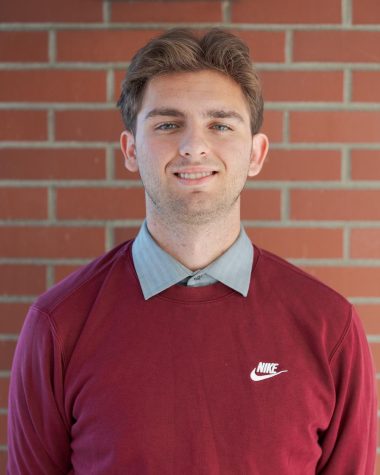Grades up since start of COVID
Professors and students review fall quarter as it draws to a close
November 18, 2020

Online learning has become the new normal for Seattle Pacific students and university students all over the country. With such a drastic change in how classes are held and operated, professors have also had to change the way they grade as well.
According to numbers provided by Vice Provost of Academic Affairs Cindy Price, grades have been climbing since the start of wide scale online learning in the spring of 2020.
SPU students finished 61% of their classes with A’s, 22% of their classes with B’s, and 7% of their classes with C’s in the Spring of 2020. Grades were lower in the fall of 2019, when all courses were in person. In that quarter SPU students finished 50% of their classes with A’s, 25% of their classes with B’s, and 10% of their classes with C’s.
The numbers from the fall of 2019 are statistically consistent with numbers from the last two years of SPU grade records.
In an email, Price said that the increase in A’s could be attributed to professors being more generous with grading or students working harder.
Dr. Rebecca Hughes, an associate history professor believes that, whether intentionally or unintentionally, she has graded her students easier since all classes have shifted online.
“I wanna have standards, and yet I do know we are all in this difficult time and learning online is far more challenging, it’s more challenging to teach online as well,” Hughes said.
Hughes also acknowledges that it’s hard to replicate the quality of in person classes in online settings.
“I do think there’s such value in being in the classroom together,” Hughes said. “I normally do more walking tours because I have a class I teach on the city, movie night, I’ve had to cut those out, so the more experiential stuff, some of that I’ve had to change.”
Assistant professor of English and Writing, Dr. Traynor Hansen, explained that he’s also had to make adjustments.
“I feel like I’m grading the same, but I’ve had to adjust the way that I teach,” Hansen explained. “I’m aware of the different ways in which students, in the different learning environment, aren’t being taught and aren’t being prepared in the same way.”
Hansen says that his own struggle with teaching online classes has caused him to be more sympathetic to students who are struggling through the current modality.
“That leniency comes from recognition that what students are prepared to do this quarter or even in the spring is in some ways different that what students have been prepared to do in other ways,” Hansen explained. “As I’ve been able to teach, in what for me seems to be less effective ways, I’ve also had to extend that grace to students.”
STEM professors have also been more lenient in some areas, but there’s much less room for flexibility in grading.
“I’ve tried not to change much in what is graded, but tried to be very flexible in how it’s done: offering extended deadlines, cutting some parts of labs to make it easier to accomplish by one person, and making tests shorter,” explained Biochemistry professor Ben McFarland. “With writing, I’ve gotten more lenient in what I accept, but on multiple choice and calculations you’re either right or wrong, so that’s the same as always.”
Second year Lucy Urbach explained that while she thinks assignments have gotten harder in the online modality, teachers have been grading easier.
“Teachers have honestly been easier with grading, because the actual assignments and stuff have been harder,” Urbach explained. “I feel like it’s harder to keep track of everything when it’s online and it feels like there’s a lot more when you see it all at once (on Canvas).”
Second year Sophia Soa addressed the proverbial elephant in the room and explained that online learning opens up the possibility of more cheating on assignments.
“You’re in control of [the assignments]. Like they just give out the material and you kinda have to navigate the material and it’s by yourself,” Soa explained. “It opens the pathway for cheating to be honest for a lot of kids.”
The COVID-19 pandemic has presented challenges to college students and professors nationwide. With a student body that has primarily been taught in person for their entire lives, it makes sense that such a drastic shift in modality would hamper the learning experience.
“It’s more difficult if you don’t have that interaction with a professor,” Soa explained. “When you’re thrown a whole bunch of pages to read and then just to complete an assignment, it’s pretty difficult.”


























































































